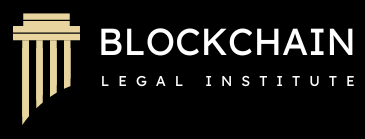When a lawyer is looking to become involved with a blockchain maturity assessment model, having a well-rounded background is essential. Blockchain technology intersects with various legal, technical, and business aspects, so a lawyer’s expertise should encompass these areas. Here are the key backgrounds and skills a lawyer should consider:
- Legal Expertise: A strong foundation in law is critical. Lawyers involved in blockchain maturity assessment models should understand relevant regulations, contracts, intellectual property, data privacy, and dispute resolution. Having experience in technology law or fintech law can be particularly valuable.
- Blockchain and Technology Knowledge: Familiarity with blockchain technology is essential. Lawyers should understand how blockchain works, its technical components, and its implications. This knowledge can help in assessing blockchain maturity from a technical perspective.
- Business and Financial Acumen: Understanding the business and financial aspects of blockchain is crucial. Lawyers should be able to evaluate the impact of blockchain on business operations, financial models, and compliance.
- Cybersecurity and Data Privacy: Given the importance of security and data privacy in blockchain, lawyers should have knowledge in cybersecurity, encryption, and data protection laws (e.g., GDPR). This is particularly relevant when assessing the maturity of blockchain projects.
- Contract and Smart Contract Expertise: Smart contracts are a critical part of many blockchain applications. Lawyers should be well-versed in contract law and have an understanding of how smart contracts work, including their legal implications.
- Regulatory Compliance: Lawyers involved in blockchain maturity assessment should keep up with the evolving regulatory landscape in blockchain and cryptocurrencies. Compliance with financial and securities regulations, as well as anti-money laundering (AML) and know-your-customer (KYC) requirements, is often a concern.
- Industry Specific Knowledge: Depending on the industries involved, lawyers may need domain-specific knowledge. For example, if assessing blockchain maturity in healthcare or supply chain, knowledge of regulations and practices in those industries is valuable.
- Analytical and Problem-Solving Skills: Lawyers should have strong analytical and problem-solving skills to assess blockchain projects critically and identify legal and compliance issues.
- Communication Skills: Effective communication is essential when working with technical teams and business stakeholders. Lawyers should be able to translate complex legal and technical concepts into clear, actionable advice.
- Collaboration: Collaboration skills are crucial, as lawyers will often work closely with technical experts, business leaders, and other professionals involved in blockchain projects.
- Continual Learning: Given the rapid evolution of blockchain technology and its legal implications, lawyers should commit to ongoing learning and staying updated with the latest developments.
- Certifications: Earning relevant certifications in blockchain technology, such as Certified Blockchain Professional (CBP) or Certified Blockchain Expert (CBE), can demonstrate expertise in this area.
Overall, a lawyer involved in blockchain maturity assessment models should have a multidisciplinary approach, combining legal expertise with technical understanding, business acumen, and the ability to navigate the complex and rapidly changing blockchain landscape.
